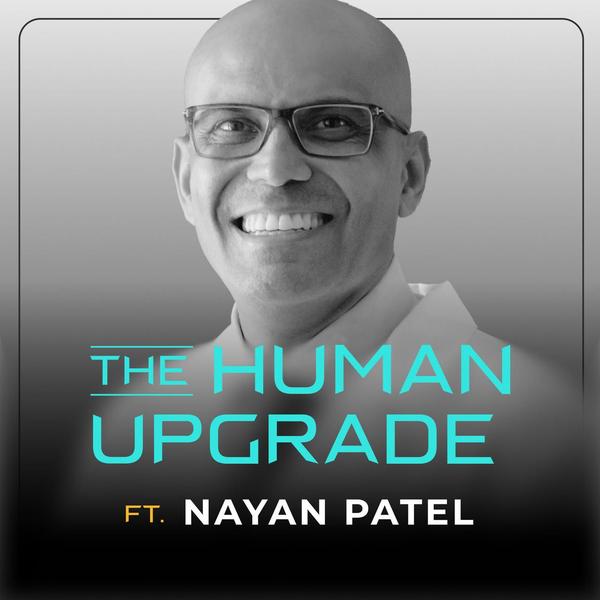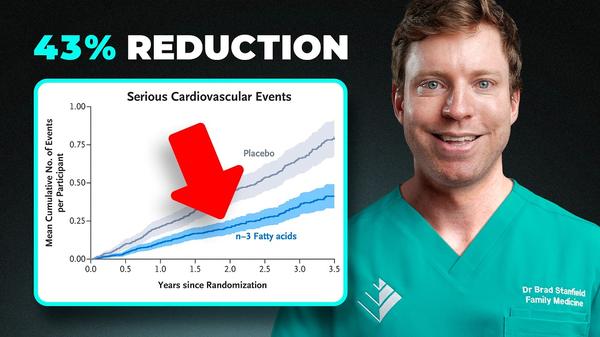*JOIN THE PHYSIONIC INSIDERS [PREMIUM CONTENT]*
Join the Physionic Insiders: https://bit.ly/PhysionicInsiders2
*HEALTH AUTONOMY [COURSE]*
Learn to Analyze & Apply Studies for Yourself: https://bit.ly/healthautonomy
*JOIN THE COMMUNITY*
Join my Community [It’s Free!]: https://bit.ly/PhysionicCommunity2
*EMAIL LIST*
1-2 Weekly Email of Value [It’s Free!]: http://bit.ly/2AXIzK6
*HIRE ME FOR CONSULTING:*
Consulting: https://bit.ly/3dmUl2H
Created with Biorender
0:00 - Introduction
0:35 - The Effect on our Brain
4:30 - Brain Size and Quality
5:27 - Dementia Risk
12:05 - How should we think about all this? Main Points.
References
[Study 497] Alateeq K, Walsh EI, Cherbuin N. Dietary magnesium intake is related to larger brain volumes and lower white matter lesions with notable sex differences. Eur J Nutr. 2023;62(5):2039–2051. doi:10.1007/s00394-023-03123-x.
Funding/Conflicts: Non-Profit [Council of Australian University Librarians] // No direct Conflicts of Interest
[Study 498] Patel V, Akimbekov NS, Grant WB, Dean C, Fang X, Razzaque MS. Neuroprotective effects of magnesium: implications for neuroinflammation and cognitive decline. Front Endocrinol (Lausanne). 2024;15:1406455. doi:10.3389/fendo.2024.1406455
Funding/Conflicts: No Funding // Potential direct Conflicts of Interest [The author(s) declared that they were an editorial board member of Frontiers]
[Study 499] Slutsky I, Abumaria N, Wu LJ, et al. Enhancement of Learning and Memory by Elevating Brain Magnesium. Neuron. 2010;65(2):165-177. doi:10.1016/j.neuron.2009.12.026.
Funding/Conflicts: Public Funding [NIH (National Institutes of Health); National Natural Science Foundation of China (NSFC)] // Potential Conflicts of Interest [Guosong Liu, explicitly declares that he is a co-founder of Magceutics]
[Study 500] Chen F, Wang J, Cheng Y, et al. Magnesium and cognitive health in adults: a systematic review and meta-analysis. Adv Nutr. 2024;15:100272. doi:10.1016/j.advnut.2024.100272.
Funding/Conflicts: Public [NIH and USDA] // No direct Conflicts of Interest
[Study 501] Alam AB, Thomas DS, Lutsey PL, Shrestha S, Alonso A. Associations of Serum Magnesium with Brain Morphology and Subclinical Cerebrovascular Disease: The Atherosclerosis Risk in Communities-Neurocognitive Study. Nutrients. 2021;13(12):4496. Published 2021 Dec 16. doi:10.3390/nu13124496
Funding/Conflicts: Public Funding [U.S. National Institutes of Health] // No direct Conflicts of Interest
********CRITIQUES, RULES, AND NOTES********
Be aware of the following rules before posting comments:
- Please do not post summaries of the video in the comments - it damages retention on the video and YouTube is less likely to promote it (these videos cost me a lot of money to produce).
Critiques of my work are welcome! Please be aware of the following notes & rules before submitting critique:
Be mindful that this content is not all encompassing on the subject at hand and is self-limited for brevity to reach a wider audience. Also, be aware that I receive hundreds of YouTube comments per day, so the only way your critique can be considered is if you follow the steps outlined below. Finally, YouTube auto-deletes links, so I do not see most comments with links attached.
RULES:
If your comment is rude, you will be banned.
If your comment is not about the studies/topics at hand (i.e. extending to other outcomes not discussed) or offers critique with no scientific basis, it is unlikely to receive a response.
If you can follow these rules, I will try to address your critique and if there is merit, I will add an AMENDMENT to the content in question and pin it so everyone can see it (thank you!).
Please use the following link to submit your critique: https://bit.ly/PhysionicCritique
Disclaimer: None of the information provided by this brand is a replacement for your physician's advice. This brand is information for the sake of knowledge and the options of choice it provides, not in any way a personalized prescription. Please consult your physician before making any health related changes.
#magnesium #brainhealth















